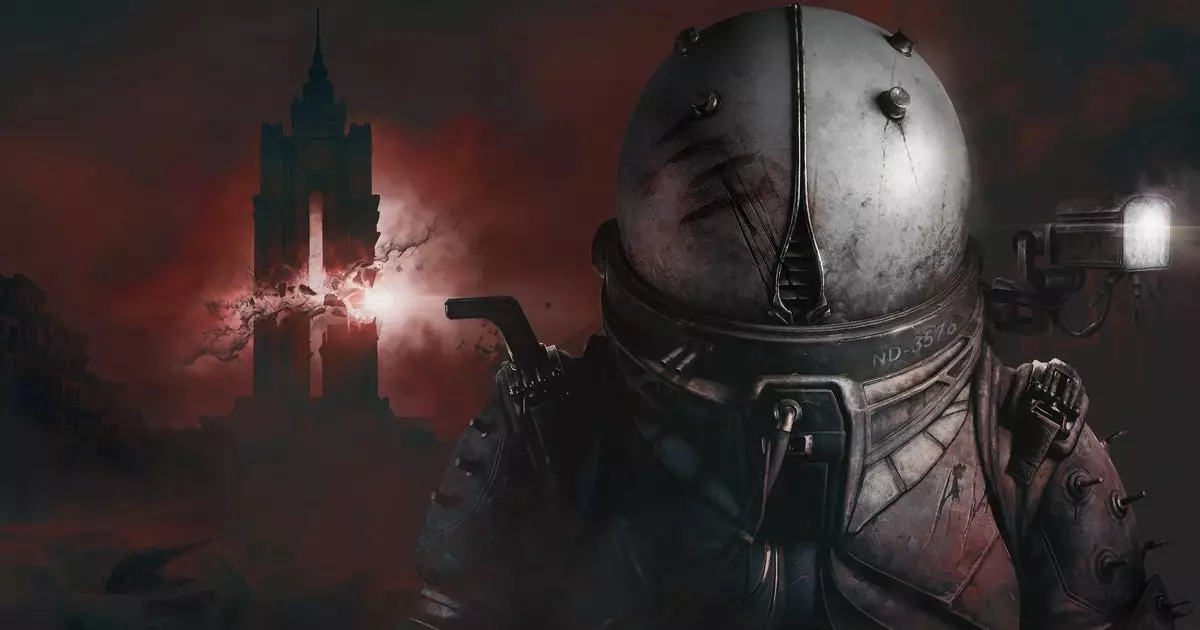In the realm of video games, the line between narrative innovation and gameplay mechanics often gets blurred. However, few developers have managed to traverse this boundary with such audacity as Bloober Team, known for their psychologically immersive titles. Their latest venture, *Cronos: The New Dawn*, is not just another entry into the sci-fi horror genre; it presents a uniquely unsettling experience that combines elements of temporal manipulation, cultural introspection, and visceral combat that promises to push the limits of player engagement. Following their acclaimed work on *Silent Hill 2*, expectations are naturally running high, and rightfully so.
The heart of *Cronos* lies in its engrossing narrative rooted in a catastrophic event termed “The Change.” Set in a hauntingly desolate future where humanity clings precariously to survival, players are thrust into an abyss of chaos characterized by grotesque environments and terrifyingly surreal adversaries. The design aesthetic draws heavily from Bloober’s prior productions, particularly the eerie ambiance of *The Medium*, signaling a familiar yet evolved approach to world-building. It beckons players into a universe brimming with danger, where every corner could house the next monstrous fiend.
The Complex Mechanics of Time Travel
One of the most compelling aspects of *Cronos* is its daring premise involving time travel back to 1980s Poland. Here, players assume the role of a “Traveller” linked to the enigmatic “Collective.” The job description sounds straightforward: journey through this nightmarish landscape and locate portals to an era steeped in personal and national history. Yet the complexity deepens as the player encounters fraught moral dilemmas centering around the extraction of “Essences” from individuals destined for death. This concept invites introspection on the value of life and the ethical implications of changing fate, stirring a captivating blend of horror and moral quandary rarely experienced in gaming narratives.
Bloober Team’s choice to set pivotal plot points in a culturally significant period for Poland taps into a rich vein of storytelling that blends horror with poignant social commentary. By exploring historical backdrops alongside futuristic calamities, they delve into the collective psyche of a nation that has endured its own traumas. The lush yet harrowing environments crafted within these contrasting timelines encourage players to not simply play, but to reflect upon their surroundings—an approach that brings substantive depth to the horror genre.
Innovations in Gameplay Mechanics
The gameplay mechanics of *Cronos* also promise to elevate the experience beyond just jump scares and atmospheric dread. Unlike previous titles where melee combat took center stage, this installment pushes forth a more dynamic arsenal with weapons designed for effective combat against horrifying foes. From a hefty hand cannon to implosion-inducing weaponry, each addition to the player’s arsenal evokes a unique sensation of empowerment against seemingly insurmountable odds.
However, the intricacies of terrain puzzles using time-reversal mechanics indicate that *Cronos* won’t merely rely on brute force. Players can expect a thoughtful approach to encounters, requiring strategic thinking as well as a keen awareness of their surroundings. The balance of action and puzzle-solving interludes could very well define the pacing of the experience, keeping players engaged as they navigate the dual realities of past and future.
A Unique Lens on Cultural Horror
What ultimately sets *Cronos: The New Dawn* apart is Bloober Team’s commitment to examining their cultural identity through the lens of horror. This unusual thematic exploration continues from their earlier works, where settings like the apartment block in Kraków serve as a tangible anchor for the storyline. In intertwining their own cultural context with genres as diverse as cyberpunk and psychological horror, they offer a refreshing perspective that invites players to engage not only with the game but also with the historical narratives interwoven throughout.
This self-reflection by Bloober Team may be an essential part of what makes their upcoming title not just a game, but a cultural artifact. It raises intriguing questions about identity, memory, and the ways we process trauma, particularly for a nation whose history is laden with such complexities. By juxtaposing this with the horror elements, it pushes players to confront their notions of fear and survival, positioning *Cronos: The New Dawn* as more than just a game; it becomes a compelling critique on existence itself, steadily pulling us deeper into its enigmatic grasp.

